Effect of fermentation conditions and plucking standards play important roles in the quality of tea juice. Recently, a paper published in the international peer-review journal<<Journal of Chemistry>> studies those key factors for tea production and quality control, with Dr. Ping Tang being the first author, Dr.Yong-Quan Xu, Dr. Xingcai Zhang, and Dr. Jun-Feng Yin being the corresponding authors. The paper can be reached and cited as follows: https://doi.org/10.1155/2018/4312875
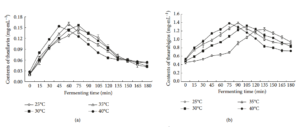
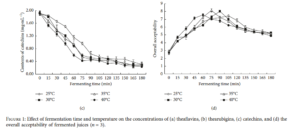
In the paper, tea researchers carried out in-depth studies on the effects of fermentation conditions (temperature, time, and pH) and plucking standards (one leaf and a bud to four leaves and a bud) on the chemical components and sensory quality of the fermented juices processed from crushed fresh tea leaves. Their results showed that optimum fermentation conditions that resulted in fermented juices of the best sensory quality and the highest content of Theaflavins (TFs) were a temperature of 35°C, a time duration of 75 min, and pH 5.1. The fermented juices processed from new shoots with three leaves and a bud or four leaves and a bud afforded high overall acceptability and TF concentration. These differences arise because tea leaves with different plucking standards have different catechin content and enzyme activities. Fermented tea juice possessed higher concentrations of chemical components such as soluble solids, amino acids, and TFs and exhibited better sensory quality as compared to black tea infusion. The TF concentrations decreased as the pH of the fermenting juice increased, and the fermented juice showed the best overall acceptability. These results provide essential information for the improvement of the processing of black tea beverage by suggesting fermentation of fresh tea leaves as a better alternative to their infusion.
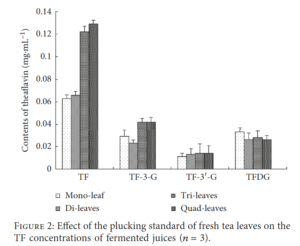
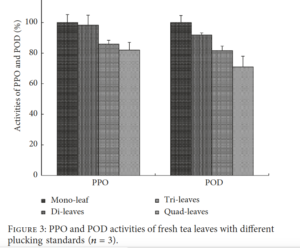
See also:
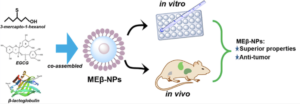
Polyphenol and Self-Assembly: Metal Polyphenol Nanonetwork for Drug Delivery and Pharmaceutical Applications by Dr. Tea (Xingcai Zhang) etc https://doi.org/10.4155/fdd-2019-0001
Effect of Fermentation and Plucking Standards on the Quality of Tea Juice, by Dr.Yong-Quan Xu, Dr. Xingcai Zhang, and Dr. Jun-Feng Yin etc. https://doi.org/10.1155/2018/4312875
Antitumor Activity of Tea Polyphenol Epigallocatechin Gallate (EGCG) Nanocomplexes (New Epigallocatechin Gallate (EGCG) Nanocomplexes Co-Assembled with 3-Mercapto-1-Hexanol
and Lactoglobulin for Improvement of Antitumor Activity. J. Biomed. Nanotechnol. 13, 805–814 (2017) by Dr. Xingcai Zhang, and Dr. Qizhen Du etc https://doi.org/10.1166/jbn.2017.2400 http://wteao.org/antitumor-activity-of-tea-polyphenol-egcg/
Tea and Cancer Prevention. J. Cancer Res. Updates 4 (2), 65-73. by Dr. Xingcai Zhang.DOI: http://dx.doi.org/10.6000/1929-2279.2015.04.02.4
SMRT sequencing yields the chromosome-scale reference genome of tea tree, Camellia sinensis var. sinensis by Dr. Xingcai Zhang, Dr. Lizhi Gao etc doi: https://doi.org/10.1101/2020.01.02.892430
For more information about World Tea Organization and collaborations, please feel free to contact WTeaO.org [email protected] or http://wteao.org/contact/.
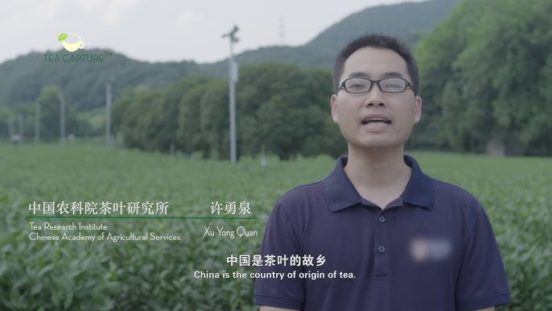

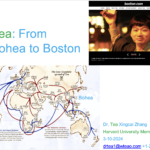
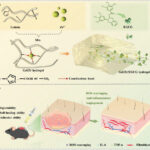

Comments by wteao
Prof. Shen Dongmei`s New Book on Tea
Rajiv Rochan---“ambassador of tea” of India in China, India Director ...